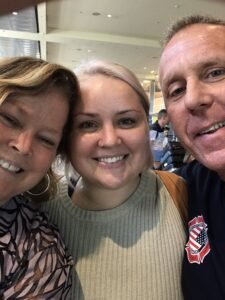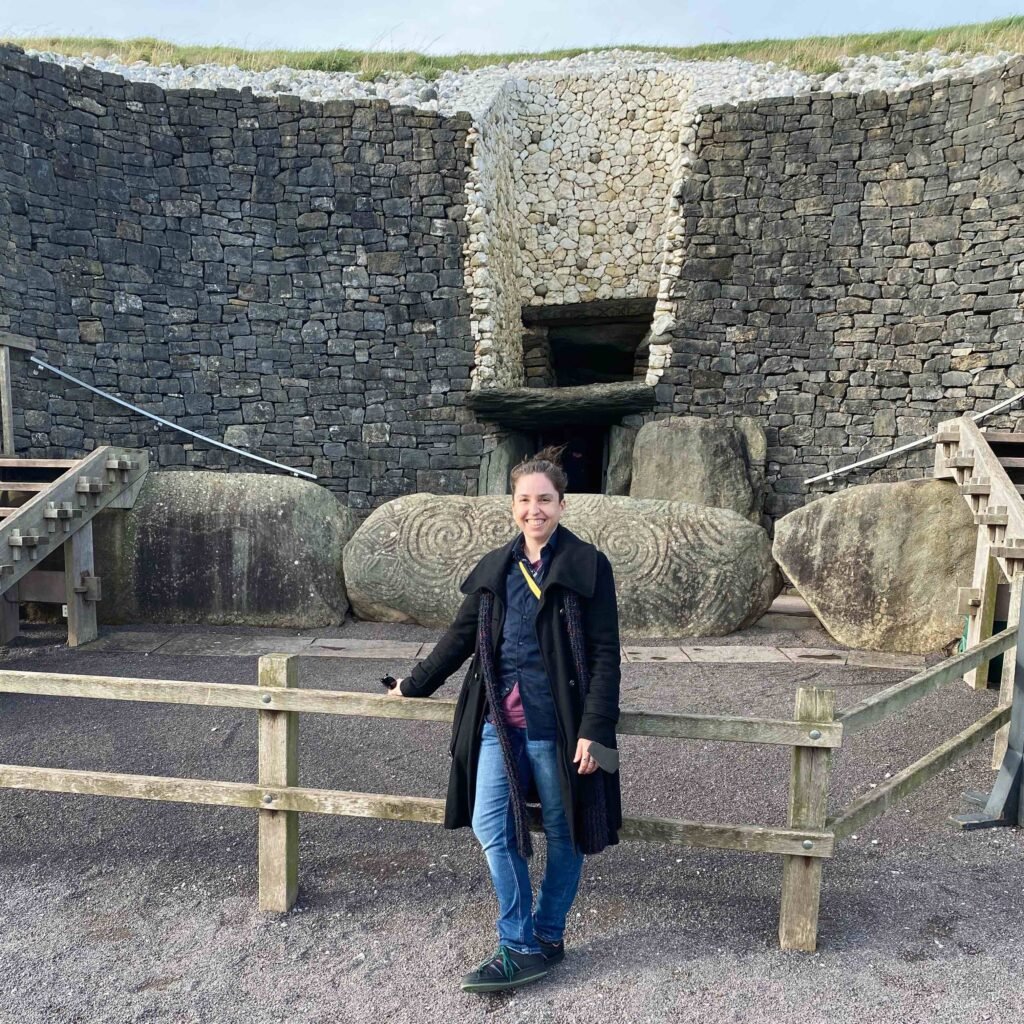Learning Irish in America: Discovering the language of my Great Grandparents

Why would I want to start learning Irish as an American? I grew up in an Irish immigrant family, and the Irish language hovered on the edges of my childhood. Although ‘Céad Míle Fáilte’ hung on the wall, I was repeatedly told about the dead language of Gaelic, which is how my mother referred to it. She was raised by her grandmother and grandfather, both native Irish speakers, who separately emigrated from Castlebar, County Mayo, but eventually married in the United States. They were determined not to pass on their native tongue, as it was a dead language. There were no allowable questions. There was only moving on. Honestly, who would want to learn a dead language? Gaelic was for a bygone era and not worthy of resurrecting. It was spoken by poor Irish and was an indicator of illiteracy and low social status; everything immigrant families are trying to overcome. End of story.
In March 2019, I was 54-years-old when I attended a parent informational session for my daughter’s upcoming study-abroad trip to County Cork. It was sponsored by two Texas State University professors. They offered college credit for a literature class hosted by University College Cork. To prepare for Ireland, the kids were encouraged to go to the Duolingo app and learn some Irish language, as local language speakers enjoyed any student attempts to converse in Irish.

I wanted to raise my hand and correct the professors that this was not possible. Irish was a dead language and no longer spoken. But then I remembered that I’d never actually BEEN to Ireland. I certainly never took literature courses there and was only an authority on my childhood stories. I tentatively downloaded the Duolingo app and was stunned to find that, indeed, it was an available language.
I turned to my daughter and whispered, “But Irish is a dead language. Gaelic is dead. Grandma told me my entire life that Gaelic is dead.” This was met with the horrified body language of my daughter telling me, Oh my god, mom, stop. You are embarrassing me. A lot can be said with no words and she was quite clear in hers.
It became my obsession and, in a short amount of time, I learned that my great grandparents actually spoke Irish daily in my mother’s childhood home, but she and the other kids were shamed for any attempts to understand or speak, although she picked up on critical words, especially when there was arguing to be done between her grandparents.
I told my 87-year-old mother that I was going to learn Irish before our upcoming trip to Ireland. Her response was clipped.
“And why would you want to do that?”
She didn’t appreciate the joys of learning Irish as an American, all these years after my ancestors had come to the USA as native speakers. I tried to explain how I felt. That I felt a bit gipped. There was this language in our family history that was withheld from us against our will and without our knowledge. I knew people who’d learned German and Italian and Spanish from their grandparents. Why were we not allowed to learn Irish? To her, it was a terrible idea and she was not a fan.
But I matched her generational shame with an equally deep and abiding love for Gaelic, Gaeilge, Irish…the specificity of the language’s name does not matter to me, although it did to my mother. I love everything about it. It feels like I am bringing forth a memory from my very DNA and that my ancestors are cheering me on and applauding my every step. I want to be able to describe every aspect of my life and my family’s stories in Gaeilge. Even, one day, this one.
I am now a passionate advocate for what should have been my FIRST language. I spread the news to everyone I know and love that Gaeilge is alive and beautiful and deserves sound. It deserves life. I sing songs of TG Lurgan, play Radió Rí Rá and watch Ros na Rún. I will break the generational language curse and speak to future generations of my family as Gaeilge, returning to them what is rightfully theirs and rightfully mine.

As for my mother, I toasted her, as Gaeilge, at her 90th birthday celebration on January 19, 2023. Mo mhamaí, lá breithe shona duit. Tá grá againn. She sank her head to her chest and laughed and laughed and laughed. She gracefully accepted the toast and everyone enjoyed cheesecake and lottery tickets.
Three days later, my husband, Greg, and I paid her a post-birthday visit. For the first time, she smiled as I updated her on my Gaeilge. Sadly, later that afternoon, we found ourselves unexpectedly saying good-bye to Dorothy Kenny Carracher. Apparently, 90 years was long enough on this earth for her. With her children by her bedside, we hugged her, kissed her, and said goodbye. And I whispered final words of love in her ear, hoping they would pass through to my grandmother on the other side. Tá grá agam duit, a mhamaí.
As for me, I will continue learning Irish as an American, speaking Gaeilge whenever possible. I will continue to take classes with Let’s Learn Irish and build my own Gaeltacht with the friends I make in my classes. And one day, in Irish heaven, I will speak to my grandparents as Gaeilge.
Bígí páirteach!
Join the online Irish community at LetsLearnIrish.com.
Follow on social media @LetsLearnIrish.





